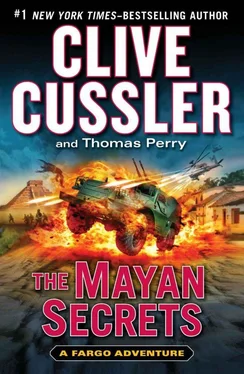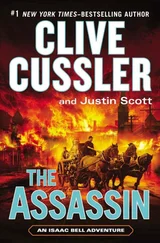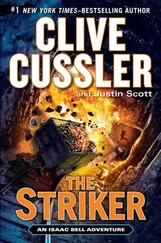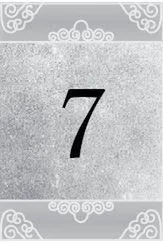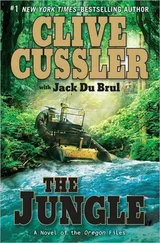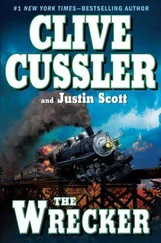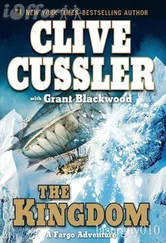Clive Cussler, Jim DeFelice
The Mayan Secrets
RABINAL, GUATEMALA, 1537
Beyond midnight, Friar Bartolomé de Las Casas was still in his candlelit study in the Mayan mission at Rabinal. Before he went to bed, he had to write his daily installment of his report to Bishop Marroquin. Persuading the Church hierarchy of the success of the Dominican missions in Guatemala was going to be possible only if it was properly documented. He took off his black cloak and hung it on a peg by the door. He stood for a moment, listening to the night sounds — the gentle coo of birds, the insects chirping in the stillness.
He went to the wooden cabinet on the wall, opened it, and took out the precious book. Kukulcan, a man of royal lineage who was famous for his great learning, had brought this book and two others to Friar Bartolomé so he could examine them. Las Casas set the book on the table. He had been studying the book for months, and tonight’s work was going to be important. He placed a sheet of parchment on the table and then opened the marvelous book.
This page was divided into zones. There were pictures of six fantastic humanlike creatures he assumed were deities, all seated and looking to the left, and six vertical columns of complicated written symbols beneath them, which Kukulcan had told him was Mayan writing. The pages were a clean white, and the pictures were done in red, green, and yellow, with an occasional blue. The writing was black. Friar Las Casas trimmed his pen to make it as fine as he could, divided his sheet into six vertical columns, and began to copy the symbols. It was hard, demanding labor, but he saw it as a part of his work. It was as much a part of his Dominican calling as his clothing — the white habit that signified purity and the black cloak over it that signified penance. He had no idea what the symbols meant or the names of the mythical deities, but he knew that the images contained deep knowledge that the Church would need to understand its new converts.
For Las Casas, managing the gentle, patient conversion of the Mayan Indians was a personal duty, a penance. Bartolomé de Las Casas had not come to the New World in peace. He had come with a sword. In 1502, he had sailed from Spain for Hispaniola with the governor, Nicolás de Ovando, and accepted an encomienda , a conquered land, and the right to enslave all the Indians he found on it. Even in 1513, after a decade of cruelty by the conquerors, and having been ordained as a priest, he joined in the conquest of the Indians of Cuba, while accepting another royal grant of land and Indians as his share of the plunder. As he thought about his early life now, he was sick with shame and regret.
When he’d finally admitted to himself that he had participated in a great sin, he’d begun his personal program of repentance and reformation. Las Casas would always remember the day in 1514 when he had stood up and denounced his past actions and returned his Indian slaves to the governor. Remembering that day was like touching the scar of an old burn. After that, he had sailed back to Spain to plead with the powerful for the protection of the Indians. That had been twenty-three years ago, and since then he had worked tirelessly, devoting his writings and his labor to making up for the wrongs he had done and countenanced.
He worked for several hours at his copying until he had finished the page. He placed his parchment copy in the bottom of a box of sermons with all of the other pages he had copied. As he moved about the small room, the candle flame flickered. He placed another clean sheet on the table, waited for the candle to be still and throw a steady yellow light again, and then started the next task. He dipped his pen in the ink pot and began with the date: 23 January 1537. Then his pen stopped, held above the paper.
He heard sounds that were familiar to him and made him instantly angry. He heard the feet of soldiers marching in a platoon, their boots hitting the damp earth, spurs jangling and sword hilts clanking as they swung against steel at the bottom of each soldier’s cuirass.
“No,” he muttered. “Not again, Lord. Not here.” It was a violation, a betrayal. Governor Maldonado had broken his promise. If the Dominican friars succeeded in pacifying and converting the natives, there were to be no colonists arriving to claim encomiendas —and, above all, no soldiers. The soldiers who had not been able to conquer the Indians in these regions by fighting must not come in now and enslave them after the friars had befriended them.
Las Casas threw on his black robe, flung open his door, and ran down the long gallery, his leather sandals flapping on the brick pavement. He could see the troop of Spanish cavalry soldiers, all armed for battle with swords and lances, their Toledo-steel cuirasses and cabassets gleaming in the light of the bonfire they were building in the square across from the church.
Las Casas ran to them, waving his arms and shouting, “What are you doing? How dare you light a fire in the middle of the mission square. The roofs of these buildings are nothing but straw!”
The soldiers saw and heard him, and two or three of them bowed to him politely, but these were professional fighters, conquistadors, and they knew arguing with the head of a Dominican mission was not going to make them richer or more powerful.
When he charged at them, they stepped aside or retreated a step but would not engage with him.
“Where is your commander?” he said. “I am Father Bartolomé de Las Casas.” He seldom used his priestly title, but he was, after all, a priest, the first ever to be ordained in the New World. “I demand to see your commander.”
The nearest pair turned in the direction of a tall, dark-bearded man. Las Casas noticed that this man’s armor was a bit more ornate than what the other men wore. His had filigree engraved on its surfaces, with gold inlay. As Las Casas approached, the man called, “Fall in,” and his men lined up in four rows, facing him. Las Casas stepped between him and his soldiers.
“What are soldiers doing bursting into a Dominican mission in the middle of the night? What business do you have here?”
The man looked at him wearily. “We have a job to do, Friar. Take up your complaints with the governor.”
“He promised me that soldiers would never come here.”
“Perhaps that was before he learned of the devil’s books.”
“The devil doesn’t have anything to do with books, you idiot. You have no right to be here.”
“Nonetheless, we are here. Pagan books have been seen here and reported to Fra Toribio de Benevente, who asked the governor for help.”
“Benevente? He has no authority over us. He’s not even a Dominican. He’s a Franciscan.”
“Those internal squabbles are your business. Mine is to find and destroy the evil books.”
“They’re not evil. They contain the knowledge of these people and all the information that exists about them, their ancestors, their neighbors, their philosophy, language, and cosmology. They’ve lived here for thousands of years, and their books are a gift to the future. They tell us things we could never find out in any other way.”
“You’re misinformed, Friar. I’ve seen some of them myself. There are nothing but pictures and signs of the demons and fiends they worship.”
“These people are being converted, one at a time and voluntarily. Not the way the Franciscans do it, baptizing ten thousand people at a time. The old Mayan gods have been diminished to mere symbols. We’ve made great progress here in a short time. Don’t waste all the work we’ve done by proving to them that we’re savages.”
“Us? Savages?”
Читать дальше
